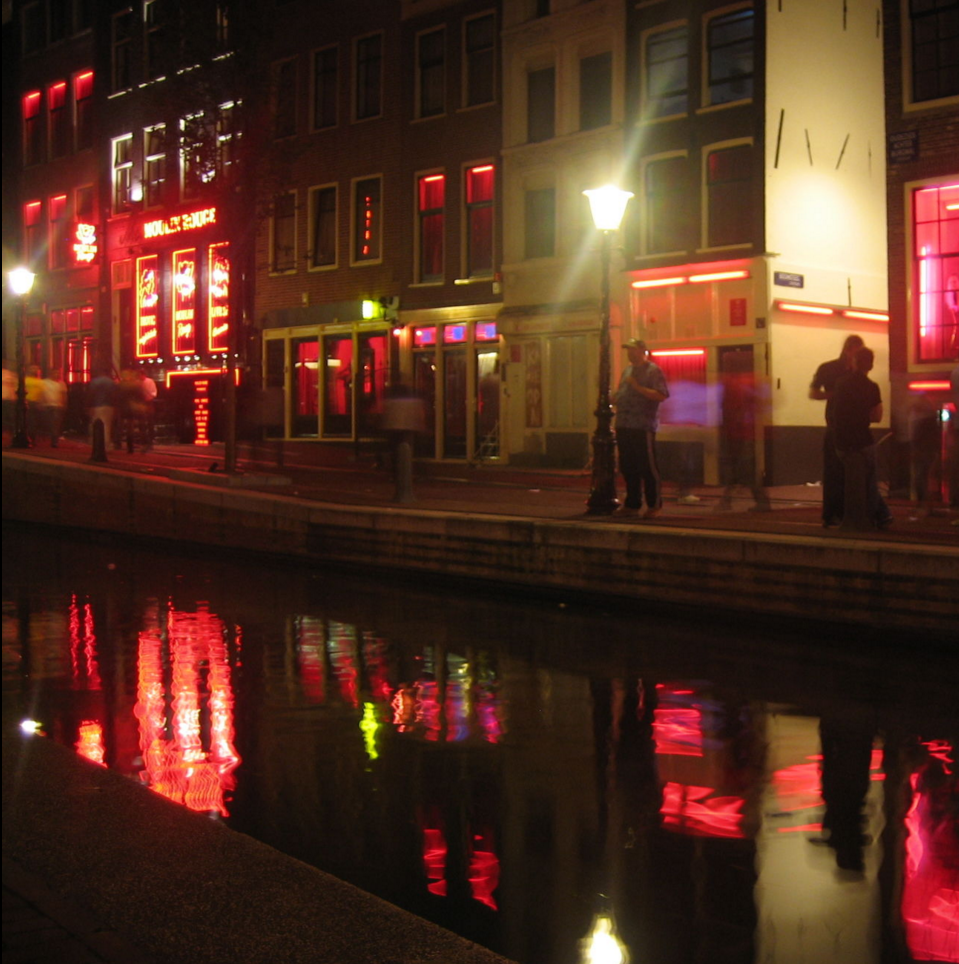
The Combat Zone was the name for Boston’s red light district, when I first moved here in 1982. I believe it’s now gentrified, much like Times Square in NYC. But I’d like to see if we can work this into a metaphor for what’s wrong with current Fed policy.
The Fed raised its policy rate in December, with the goal of tightening monetary policy and reducing future inflation. I say “goal” because when they raise interest rates the actual stance of monetary policy does not necessarily tighten for any extended period, it merely reflects an intention to tighten. In this case, it’s possible that the policy ended up tightening by even more that the Fed intended. I say “possible” because it’s hard to know for sure. We don’t have a highly liquid NGDP futures market.
Because we don’t have a good NGDP futures market, the Fed is forced to sneak around peeking into some pretty disreputable places, most notably equity markets. It would be a great embarrassment to the Fed if ordinary people actually knew the Fed was doing this. It would make it looked like they cared about propping up equity prices more than they care about jobs for the average person. So they pretend that they don’t peek.
But they do peek, because the Fed knows that equity markets (and bond markets and commodity markets) often provide the first clue of an economy that is about to tank. Not a particularly reliable clue—recall the famous joke about the stock market predicting 11 of the past 6 recessions, but nonetheless an important clue.
Obviously the Fed can’t respond to each up and down in the market, nor should it. But here’s the problem. Because the Fed must pretend to ignore the stock market, it can’t act to correct a mistake until the carnage on Wall Street is so unmistakable that even average people think it’s necessary to step in. By that time it may be too late, a recession may already be underway.
Right now stocks are in the midst of a sizable global downturn. The fact that bond yields and commodity prices are also falling suggests that it’s at least partly due to expectations of falling NGDP growth. But it’s hard to be sure, as these markets tend to be somewhat volatile.
I’d like the Fed to stop secretly peaking into the economic equivalent of strip clubs, and boldly pay attention to the economic equivalent of the high-end theatre district—NGDP futures market. It’s possible to create and subsidize trading in this sort of market at a trivial cost (by Federal Government standards.) With these markets, the Fed would not have to wait until it’s too late to act, as it may end up doing if this market scare proves to be worse than the one during 2011 (which did predict a eurozone recession, BTW.)

READER COMMENTS
Mike Hammock
Jan 20 2016 at 1:37pm
Sorry to be pedantic, but you mean “peek” not “peak”.
ThomasH
Jan 20 2016 at 9:12pm
They could also the “danger” by targeting inflation and not an inflation ceiling and that requires no new instrument.
I see the theoretical advantages of NGDP targeting, but until we understand the constraints that prevented the Fed from targeting inflation, we can have little confidence that the new target would not be similarly viciated.
Scott Sumner
Jan 21 2016 at 9:14am
Thanks Mike, that’s what I did mean.
Thomas, If it is to be inflation targeting, they really need to switch to the price level. But that won’t solve the problem, because inflation is the wrong target.
Under level targeting there is no distintion between symmetrical inflation targets and inflation ceilings.
ThomasH
Jan 21 2016 at 10:05am
Inflation targeting IS price level trend targeting. What economists have let the Fed and “macro media” get away with claiming to be “inflation” targeting has been inflation rate CEILING targeting. What is more amazing is that although there is a theoretical rationale for inflation (price level trend) targeting — to reduce policy-generated uncertainty about future price levels, I know of no rationale for inflation rate ceiling targeting, which implies greater uncertainty about future price levels.
I have come to suspect that the behind interest rate ceiling targeting is an unspoken commitment to reducing volatility of ST interest rates, for which I’ve also not seen a theoretical rationale.
Comments are closed.